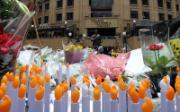
THE greatest irony of most Nelson Mandela eulogies is that they make him what he did not want to be — a superhuman leader: his most important contribution to democracy may be the limits he placed on his leadership.
We have been told that Mandela single-handedly defeated apartheid and united the country. This is a problem for three reasons. First, it reinforces the myth that we have few merits and resources and have been saved from barbarism by one individual. Second, it strengthens those among us who insist that all our problems will be solved by more "leadership". Third, it isn’t true.
In contrast to those who see him as the great soul who saved us, Mandela insisted repeatedly that he was part of a communal leadership. This was not simply a platitude. His values and vision were shared by, among others, Oliver Tambo, Walter Sisulu, Govan Mbeki and Albert Luthuli. While they may not have matched his knack for relating to people, all would have said and done much the same had they led South Africa in the 1990s. It was Thabo Mbeki, not Mandela, who directed the initial negotiation process that later ended apartheid. African National Congress (ANC) leaders then relied on a rich political tradition, often a product of mission school education. Mandela expressed those values — he did not invent them.
Nor did he always call the shots in the ANC. He did not, for example, choose his successor — he wanted Cyril Ramaphosa, but the ANC chose Mbeki. Not only did he accept the verdict, he gave Mbeki as much power as he could because he wanted the world to get used to someone else at the helm by the time he left.
In office, he submitted himself to the law and constitution by honouring a subpoena issued by rugby boss Louis Luyt and by refusing to react when the right-wing British media pilloried him (they had, he insisted, a right to say what they liked about him).
The most obvious evidence that he did not see himself as a messiah was his insistence on serving only one term, which, ironically, did more to make this country safe for democracy than anything else he did. New democracies are shaped by precedent — what happens for decades can be shaped in the first few years. Mandela’s departure ensured that we have had four presidents in 20 years, in contrast to the familiar syndrome of the "post-liberation" leader who governs for life. This established the principle that the presidency is no one’s property forever: and so it will be difficult for future presidents to overstay the two terms allocated to them.
Nor did he try to run the government by remote control after he stepped down. Yes, he did exercise his right to attend ANC executive meetings, only to withdraw in the face of Mbeki’s hostility. But there is a great difference between this and the leaders who find ways to govern even after they step down — and he withdrew because he refused to impose himself on the ANC when its new leadership seemed not to want him.
It is claimed that Mandela played a political role after he left office. Besides buying into the myth the governing party could not manage without him, this is unconvincing: evidence offered is that he expressed opinions after he ceased to be president and that some were influential — the same could be said of some columnists. One of many reasons Mandela’s passing will not disrupt our politics — besides prompting another no doubt temporary bout of national unity — is that he left active politics 15 years ago. This, too, has been crucial in building democracy.
Constant references to Mandela as a superleader miss the point that his most important contribution to our future may be his belief in the limits of leadership. Democracy has been described as "self-limiting government" — what government can do is limited by the law and the will of the people. Mandela’s style of leadership was "self-limiting": it countered the claim that history is shaped by great individuals.
This insistence that leadership should set limits on itself is not obvious today. Elsewhere on the continent and other parts of the world, leaders still seek to stay as long and to wield as much power as possible. And here, we hear frequent demands for "leadership". This is either a cry for help — made by those who have no idea what we need but hope that someone will come along who does — or a deeply undemocratic hankering for a strong figure who will impose whatever the agenda favoured by those who call for "leadership".
This understanding of leadership was not Mandela’s. The limitations he placed on his role signalled that leaders can only do so much: a new society will be built here not by relying on great individuals but by depending on ourselves and our institutions.
Mandela showed us not what a great individual can do to save us from ourselves: he showed us of what we might be capable if, like him, we build on the traditions that enabled our society to defeat apartheid.
By Steven Friedman
Friedman is director of the Centre for the Study of Democracy.
Flower are strewn in front of a statue of former president Nelson Mandela at Nelson Mandela Square in Sandton, Johannesburg. Picture: GCIS
Source: Business Day

